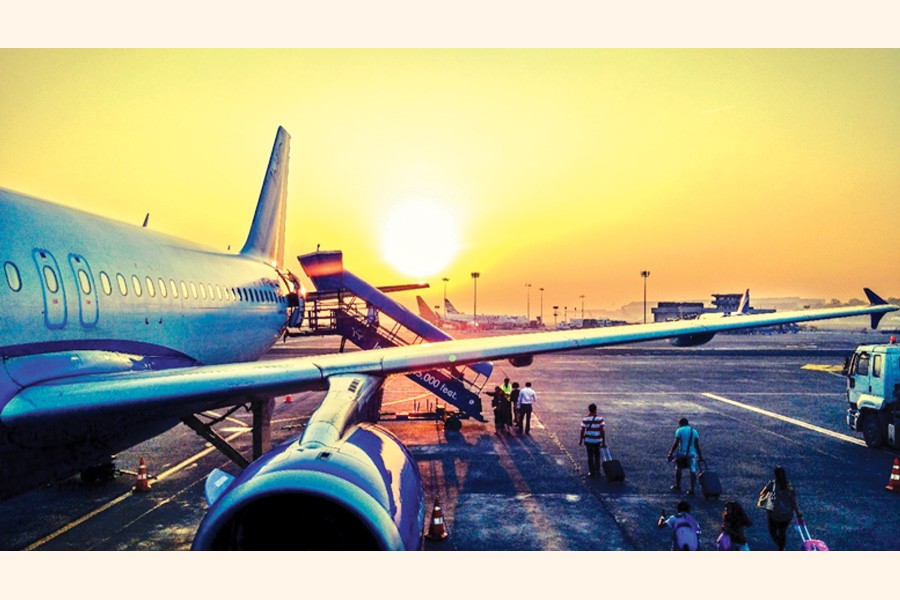Travelling is one of the most popular leisure activities among the youth of today. The ease of access to information related to traveling through internet and the availability of budget flights have made traveling very accessible among the millennial generation. According to research conducted by WYSE Travel Confederation, the youth segment is one of the fastest growing segments of international tourism. Youths comprise over one-fourth of the international tourists representing around 370 million travelers per year. They contribute to over $400 billion in tourism receipts. The average youth traveler stays longer on trips, they spend more per trip and travel more frequently than other segments. It is without a doubt the youth are a crucial segment for the $2.9 trillion global travel and tourism industry.
The global pandemic disrupted the tourism sector for some time now. Everyone will travel again, but however, it will not be the same. After international borders reopen, travelers will need to have the assurance that boarding a plane is safe and that the destination country is virus-free. New health and travel regulations will be implemented. Traveler behaviour is expected to change and the government and the industry must adapt to the new context.
So how does the future of this industry look for today's youth?
Touchless travel
The pandemic has taught the world creative ways of minimising contact with other people and surfaces in day to day activities. Airports and hotels will have a shift to a touchless check-in process. The current immigration and check-in process represent a risk of infection for the airline staff and travelers as it involves multiple contacts. Changi Airport in Singapore has implemented Automated Immigration in 2017 and other airports are likely to follow.
Domestic travel first
Domestic travel will recover at first around the world as it is more easily accessible and because there are no border controls. Traveling within Bangladesh is quite popular among the youth. Destinations such as Sylhet, Cox's Bazar, St. Martin's, and Sajek valley are likely to enjoy from visitors from all around Bangladesh. These destinations are visited for batch trips from universities, family getaways, and even for honeymoons for newly married couples. Customers will be checking reviews from social media groups such as Travelers of Bangladesh (ToB) on Facebook while planning their trips. After obtaining confidence from domestic travel, travelers will then gradually opt for international travel.
Kowshik Azad, a travel enthusiast who already traveled 26 out of 64 districts in Bangladesh, was planning to visit all 64 districts by the next two years shared, "I had a plan to visit a number of districts throughout the year that I haven't visited yet. All of them are cancelled for now because of this uncertainty. Although the lockdown is becoming more and more flexible outside Dhaka, I believe choosing home quarantine over travelling, especially during such trying times, is what makes us responsible as travelers."
Difficulty in budget-friendly traveling
The millennial generation wants budget-friendly traveling. Air India, AirAsia, Malindo, and Thai Lion airways are some popular budget airlines popular among young Bangladeshis to travel to India, Malaysia, Indonesia, and Thailand. But social distancing regulations have been implemented where airline carriers have to maintain empty seats in every flight. This will drive up the price of flight tickets.
Unwilling to compromise on safety
Although the young generation seeks to find the most cost-effective deals on traveling, however, they are not willing to compromise on safety and hygiene. Operators of buses, trains, ferries, and airlines must provide sufficient safety facilities for the customers to ensure health safety. Customers will be reassured if operators can provide hand sanitizers, clean vehicles, and encourage passengers to maintain hygiene while traveling. Airline carriers can assist customers in conducting pre-screening tests before boarding a flight, and have emergency medicine and portable medical equipment for any medical emergencies during long flights.
Sabira Mehrin, the founder of Wander Woman, a platform for female travel enthusiasts of Bangladesh, shared, “Travel wouldn't be the same as previously (before Covid-19) we used to organise for women. Now we have to take a look at the travel restrictions and tourism regulations more carefully while choosing a destination. On top of that, we would focus more on health condition and hygiene practice of travelers as safety has always been the top priority for Wander Woman.”
The rise in popularity of travel safety apps
Despite the improved numbers, there is still some insecurity and uncertainty among travelers regarding whether a region is virus-free. Travel safety apps can help customers monitor the news and be reassured about public safety. Popular travel apps such as Trip Advisor, Expedia, and booking.com are likely to provide more public safety and health information to assist customers while booking and planning their trips. Previously, travel safety apps were used by corporations while sending their employees to risk areas. Covid-19 pandemic has shown that no area is completely immune from an outbreak and thus by staying updated with information, customers can feel more secured.
Gradually, more travel operators and airlines will be allowed to operate while maintaining the new regulations. When the global standards for maintaining safety are developed and implemented, the youth will be ready to pack their bags to start exploring the world again.
The writer graduated from IBA, University of Dhaka and is currently working at a reputed non-banking financial institution (NBFI). He can be reached at [email protected]


